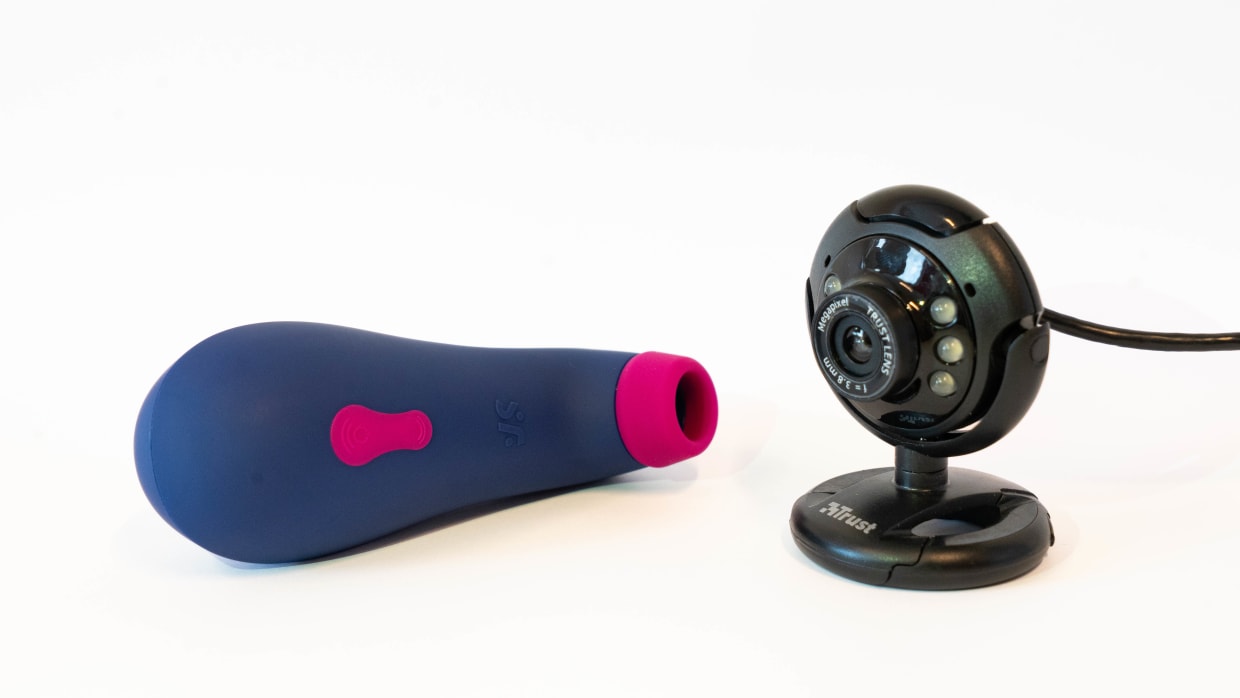
According to this UvA PhD student, sex work is as ordinary as other online work
Sex workers are often criminalised and stigmatised, making them reluctant to participate in research. Yet PhD student Hanne Stegeman spoke to dozens of webcam performers for her PhD research. “They are quite quickly put into a sensational pigeonhole, while it is a job like any other.”
Online sex work is a billion-dollar industry about which surprisingly little is known. PhD student Hanne Stegeman delved into the world of webcamming and interviewed dozens of webcam performers from the Netherlands, the UK and Romania for her PhD research. She investigated how online sex workers experience their work, the role of visibility, dependence on platforms and the associated work risks.
There was nothing exciting about that. The field of work may be surrounded by mystery and excitement, but the questions Stegeman asked could just as easily have been asked of Uber drivers, YouTubers, or other platform users, Stegeman says. “Think of questions like: What does a working day look like? How do you deal with the conditions of online platforms? And how do you work on your online identity?”
Yet it can be difficult to find online sex workers willing to participate in research, says Stegeman. “They find it annoying if a negative or stereotypical image of their work is portrayed.”

Criminalisation and stigmatisation
That image is often the result of the criminalisation and stigmatisation of the sex industry. This makes it difficult to gain the trust of sex workers, Stegeman explains. “Its creation is complex, but rooted in conservative ideas about sexuality, in which sex only fits in the context of love and not in the context of a transaction. In addition, we still live in a patriarchal society in which sex should not be something that can be earned by women. ‘After all, sex should be free for men.’”
Besides the entrenchment of these cultural phenomena, Stegeman cites sensationalism as a turn-off for online sex workers. “Bells immediately ring when it comes to sex or sex work. People find it exciting or interesting, sometimes with negative connotations. For example, if the EO makes an item about sex work, it is quickly portrayed as a very sad industry in which a lot is wrong. For those reasons, sex workers may also be reluctant to cooperate.”
Anonymity
In the first phase of her research, Stegeman could therefore count on few responses. Many webcam performers work under a pseudonym to guarantee their anonymity. That is also directly one of the biggest concerns about participating in media reports and research, Stegeman explains. “By participating in research or journalistic productions, the control over their anonymity falls away. As soon as it comes out who is behind the pseudonym, the consequences can be enormous. For example, they lose their jobs, are disowned by family and friends, or are extorted. That also adds to the stigma on this work.”
In the end, Stegeman managed to speak to 67 webcam performers for her PhD research. Through major cam websites, as well as cam studios and trade union organisations, she managed to make contact and gain the trust of some online sex workers. “One of the webcam performers I had spoken to had shared my appeal on a forum, after which I received a huge number of responses. I think my approach, i.e. listening a lot and not wanting to bring up something traumatic right away, contributed to that.”
Ordinary work
Interviews with webcam performers hardly touched on sex-related issues. “They are quite quickly put into a sensational context, while it is a job like any other,” says Stegeman. “Most webcam performers spend their time scheduling appointments, taking care of tax matters and thinking about their earning model. We hardly talked about really sexy stuff.”
This is another reason why Stegeman advocates considering sex work as normal work. Sometimes you hear people say, ‘I’ll quit my studies and start an OnlyFans account.’But they have no idea what is involved. Moreover, we can learn a lot from online sex workers when it comes to maintaining an online profile and visibility. Nowadays, everyone has to deal with an online identity, whether you are an academic, journalist or anything else; your online presence is crucial. Besides, nowadays most people sit behind their webcam daily for work. In that respect, there is little difference with online sex workers.”
Hanne Stegeman will receive her PhD on Wednesday 25 September at 16.00 on her thesis Behind the webcam: Contested visibility in online sex work in the Netherlands, Romania and the United Kingdom. The defence will take place in the Agnietenkapel and is freely accessible.

